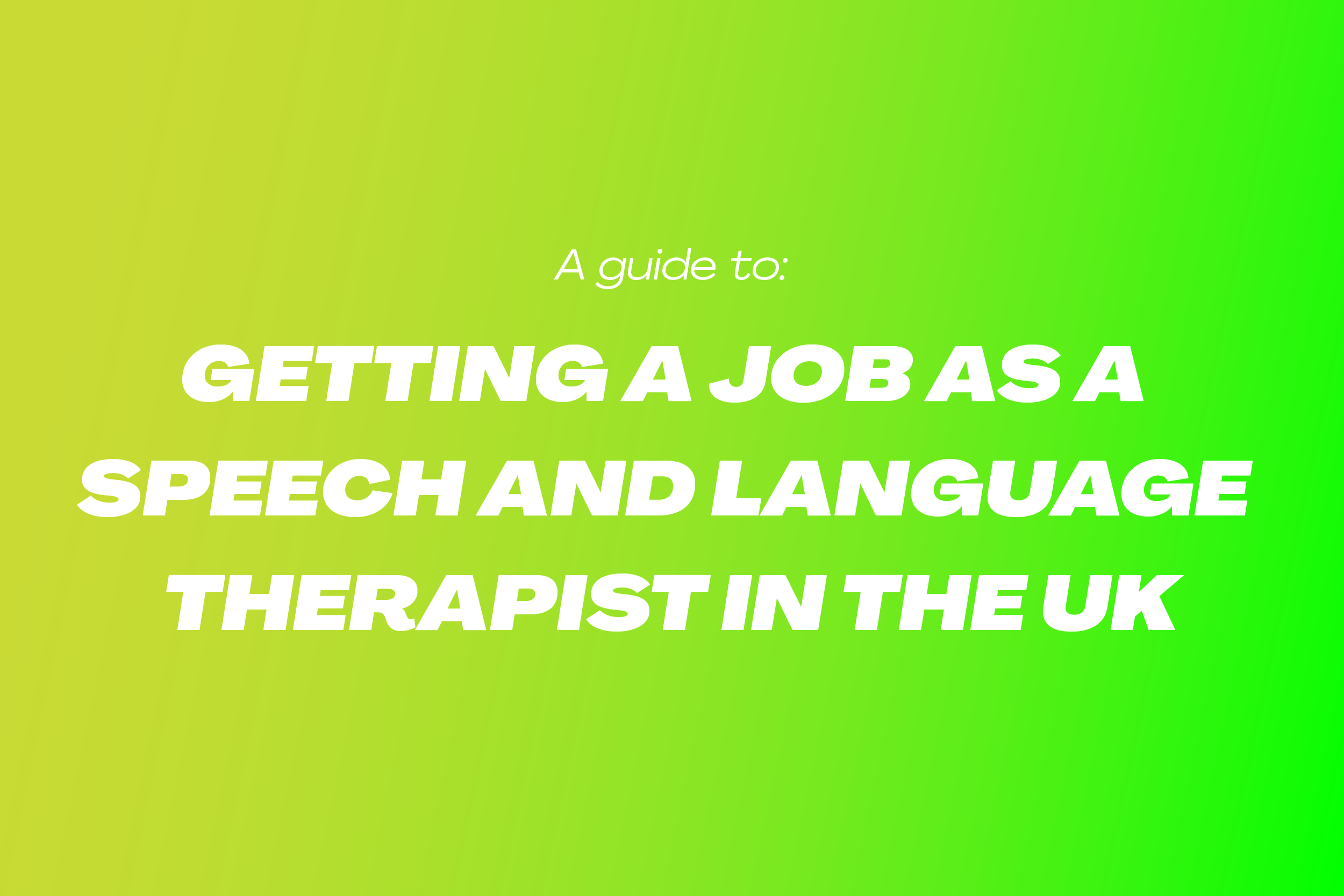Embarking on a career in Speech and Language Therapy (SLT) is an exciting journey. After you complete your degree, it's important to gain practical experience. Finding the right job is also a key step for a successful career. This guide offers expert insights on securing placements, developing key skills, and advancing in the field.
Article Breakdown
Building Practical Experience in SLT
Specialising in a High-Demand SLT Area
Finding the Right Job in SLT
Overcoming Common Job Search Challenges
Advancing Your SLT Career
Conclusion
Building Practical Experience in SLT
To stand out as a newly qualified Speech and Language Therapist, gaining hands-on experience is essential. Consider the following opportunities:
- Clinical Placements – These are part of your university degree but seeking extra placements can enhance your experience.
- Shadowing Experienced Therapists – Observing professionals in action helps you understand different specialisms.
- Volunteering – Working in hospitals, community clinics, or special schools can provide invaluable exposure to diverse patient groups.
Samantha Krimgoltz, our dedicated SLT consultant at Your World Healthcare, advises:
"To work as a Speech and Language Therapist, you need a degree in Speech and Language Therapy. You also need to register with the HCPC to meet professional standards. Dependability and a willingness to engage in face-to-face work are especially important in hospital and school settings. Strong communication skills are key for working effectively with patients, families, and multidisciplinary teams."
Specialising in a High-Demand SLT Area
As you gain experience, specialising in a niche area can improve career prospects. Some sought-after fields include:
- Paediatrics – Working with children with speech and language delays in schools and clinics.
- Dysphagia – Treating patients with swallowing disorders, particularly in stroke and neurorehabilitation units.
- Neurorehabilitation – Helping individuals recover communication abilities after brain injuries.
- Voice Therapy – Supporting professionals such as actors and singers with voice care.
Samantha notes:
"Experience in high-demand specialisms such as dysphagia and paediatrics is a significant advantage. Those who have worked across hospitals, schools, and community care show adaptability and are more competitive."
Finding the Right Job in SLT
Once you’ve gained practical experience, the next step is securing a job that aligns with your skills and interests. Follow these key steps:
- Create a Strong CV – Highlight clinical placements, specialisms, and relevant experience.
- Tailor Your Cover Letter – Emphasise your passion for SLT and any specialist areas of expertise.
- Use a Recruitment Agency – Agencies like Your World Healthcare can provide exclusive job opportunities and career guidance.
Nicole, an SLT working with Your World Healthcare, shares:
“Your World has been a great agency to work with, and Sam has been fantastic at finding me work. I have maintained a long-standing relationship with Sam over the years, and she has always pitched the appropriate jobs for me.
Sam listens to what I need and doesn’t send me jobs in clinical roles in which I’m not interested or trained. She is always incredibly thoughtful. Sam considered the job's location and how it relates to where I live. She also considers the pay I want based on my experience.
My biggest lesson in my career is that working in speech therapy is satisfying. Once you start your studies and gain experience, you will see this. It does take time to build confidence in the clinical elements but once you do, it’s gratifying.”
Overcoming Common Job Search Challenges
Many newly qualified SLTs face hurdles when job hunting. Here are solutions to common issues:
- Delays in HCPC Registration – Apply early to avoid delays in securing roles.
- Lack of Dysphagia Training – Many adult dysphagia roles require additional qualifications, so consider CPD courses.
- Limited Flexibility – Being open to face-to-face roles improves job prospects, as employers still prioritise in-person therapy.
Advancing Your SLT Career
As you grow in your career, you consider ways to advance in the field. Continuing professional development with professional development is essential. CPD courses in specialist areas can help you qualify for higher-band roles. Specialist CPD courses in areas such as dysphagia, autism, or neurorehabilitation can enhance expertise and open senior positions.
Connecting with other speech and language therapists is important. Joining groups like the Royal College of Speech and Language Therapists (RCSLT) can help.
These groups provide great career opportunities. They also offer mentorship and updates on the latest news in the industry.
Many SLTs choose to move into private practice. This option gives them more control and flexibility. It also offers the chance to earn more than salaried jobs in the NHS or other healthcare settings.
Samantha highlights:
"We pride ourselves on fast and reliable placements. If you need a job quickly, we deliver.
We have strong connections with the NHS and private sector, which gives us exclusive job opportunities. Our personal approach helps us match candidates to roles that fit their skills and goals.
One of our quickest placements happened in under an hour. A Speech Therapist lost their role on Friday afternoon, needing urgent work by Monday. Within 15 minutes, we secured an interview, and within 30 minutes, they had a job offer. By Monday morning, they were back at work, and they are still working there today!"
Conclusion
Starting a career in Speech and Language Therapy can be tough. However, with the right experience and job search tips, you can create a rewarding career. By specialising in high-demand areas and leveraging recruitment support, you can fast-track your professional growth. This will enable you to make a lasting impact in the field.









